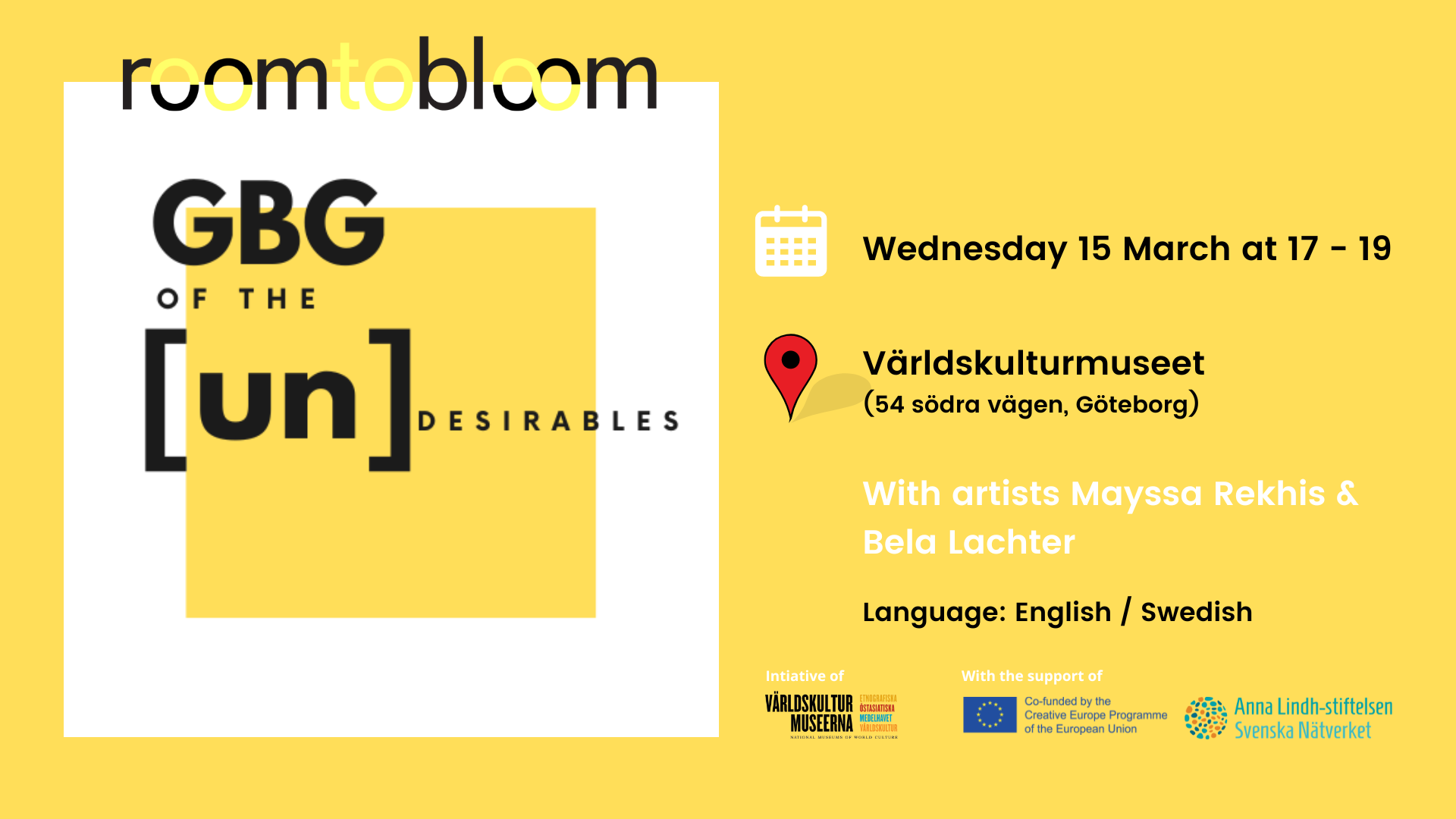
While walls, borders and camps give an impossible-to-miss materiality to the undesirability of certain populations such as refugees and immigrants, undesirability can also take the form of discriminatory policies, discourses, micro-agressions, displaced jokes, or invisibilisation. It can be subtle and difficult to pin-point, describe, put into words or denounce.
Women of colour, immigrants, second, third and fourth generation immigrants, disabled people, LGBTQ persons, and many others have been, through history, pushed away, if not by walls, laws and election campaign posters, by insisting looks, uncomfortable questions or dismissal. Being made to feel like a stranger, strange, out of place, while familiarity becomes exclusive to those who should be there, who are desired to be there, wanted, praised, needing to be protected from queerness, blackness, threatening cultures, others.
Gothenburg is defined as a port city founded more than 400 years ago, a commemoration that is going to be celebrated through different events and festivities this year. It is a city of more than half a million inhabitants, from diverse backgrounds, but is considered to be one of the most segregated cities in Europe.
In the framework of the Room to Bloom programme, the artists Mayssa Rekhis and Bela Lachter intend to co-create an alternative map of belonging focusing on the non-majority, exploring their spatial practices, grasp places and times where they feel familiar, feel like they belong, like they are not undesirables. The project aims to engage into the practice known as counter-mapping; creating an alternative spatial representation of the city, of those who may not be the loudest, nor the most heard, as a way to make them visible, even if only for the ephemeral moment of this art project.
The dream of writing a collective story with multiple voices, a counter-map centred around marginalised voices, claiming spaces, places, moments and experiences in the city where they live, with reflections and annotations on their belonging, non-belonging, familiarity and strangeness.
The exploration will start with questions we ask publicly about moments, and places of belonging of those who may be - most of the time - undesirables because of their skin colour, their religion, their gender, the gender of the person they love, or their accent. We will ask about when and where they felt familiar and comfortable, where they felt uncomfortable and what they would like to change in the city.
Right now, the artists are collecting stories, excerpts, and images. The collected narratives will be worked on during an open collective workshop that will take place on Wednesday 15 March 2023 at the Museum of World Cultures in Gothenburg at 17.00 - 19.00 (fika included). We will then co-create an alternative map of Gothenburg with the collected narratives about belonging and non-belonging in Gothenburg.
During the workshop, the two artits from migrant background will continue sharing narratives, working with the collected ones, co-creating, co-writing, and reflecting on how far we would like to take the newly created map of stories. A counter-map of moments and places where the invisibles or hyper-visibles may have felt once that they belonged, where they engaged in practices of solidarity, care or strange familiarity: a map of their Gothenburg, the Gothenburg of the [un]desirables.
Click here to contribute to the map through answering a few questions.
Sign up to attend the workshop on 15 March at Världskulturmuseet.
For questions: Please contact Mayssa Rekhis or Rasha Shaaban.
About Room to Bloom
Room to Bloom brings together feminist artists who create ecological and postcolonial narratives of Europe and beyond. Room to Bloom aims at building a discourse on European culture that is fully built on the experience and knowledge of the periphery and to bring it back to the centre. More info
This event is organised thanks to the support of Creative Europe Programme and Anna Lindh Foundation network in Sweden.
Notes:
a) Undesirability of refugees and immigrants is a concept developed by the anthropologist Michel Agier in his book “Managing the undesirables: refugee camps and humanitarian governments.”
b) Counter-mapping is a practice grounded in indigenous struggles for land, and black feminist geographies, a political practice that is defined as remapping to denounce injustice, and as a critique to the violence of hegemonic mapping. The name was first coined by Nancy Peluso in her work on remapping Indonesian forests in the 90s, and in her seminal text “Whose woods are these?”